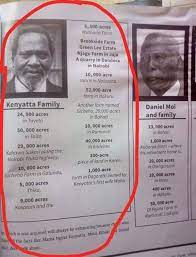The people were seated and silently listening to the tribulations that had befallen Maina Wa Nalukale. After he had spoken, few moments passed, elders consulting among themselves. The first elder to stand and add his voice was Nakitembwa, the Omukasa for the Masaaba. He condemned the act and retaliated that Namunguba should be killed. Secondly, Mingichi who was Omukasa for Barwa Bauchuchi agreed with Nakitembwa that he should be killed. From Bamia, Mirikwa their elders said the community should not kill Namunguba since a woman is like a flowing river, a common property to the society.
Then it was the turn of Bukusu elders. Among them was Welembe Omuala by clan, Cherono, Omufuumi and the well-known Mungo’ma Omubichachi. After a brief joint consultation they said:
“When a person grows old it is okay for him to give his youngest wives to his surviving son. All we can do is perform the silukhi so that Namunguba gets cleansed from the wayward behavior he has exhibited”
Observably, the decision of the day proved sympathy to Namunguba. However, the author in his research establishes that indeed it was customarily wrong for Maina to eat silukhi with his son. It would be equated to adultery which could be a reflection. Besides, those condemning Namunguba to death did so beyond the customary expectations. Among the Babukusu, the killing of a kinsman was never allowed. Close kinship was and still is valuable in the community’s days and practices.
As the ekokwa (gathering) was coming to an end, Maina wa Nalukale rose to pour his prophetic curses and blessings to every community that had attended the session.
To Bamasaaba, he said:
“Enywee Bamasaaba, nabawa chimbabasi. Kene mumenye mumakunda kano mindali ne mindali. Mbao omusiku olibarusiamo ta! Mukhabe nge kumusola. Mukhakhebe babana mubulala” [You Bamasaaba, I bless you. You will live in the land forever. In peace You will flourish like Kumusola tree (it shed seeds in the vicinity, so that trees close together). You shall circumcise our children under the same roof]
To Barwa Bauchuchi:
“Enywee Barwa, Nawaba chimbabasi. Mukhamenye mumilembe khumindali ne mindali” [You Barwa (Kalenjins) I bless you. You will live to enjoy a long spell of peace and prosperity].
To Bamia (Teso):
“Enywee Bamia, nabalamile! Mukhabe bandu bataling’alinga. Sekane mubiale chisaka mubilundu ta! Kamakunda kenywe kakhabe ka beene. Buyiinda bukhabamiukhekho nga chiswa munjala” [You Bamia, I curse you! You shall continue to be a wandering tribe. You shall not grow chisaka vegetables in your abode. You old homes will be taken by your adversaries. You shall not hold wealth in your hands for it shall slip your fingers like termites].
To Babukusu:
“Enywee Babukusu, nabalamile! Mukhauyauye basiku nebamutimasya. Sekene mukhebe babana benywe abundu alala ta. Mukheyusilisye Khuluku lwa Masaaba lwekhuranga nende lurakho. Bubwasyo bwokhutaru kene mwakanane nende Khururwe Yabebe. Khwamila elikwe Yabebe ekhabemie mulukendo lwenye. Basiku Bakhabape liye musalanyikhe” [To you Bukusu, I curse you. You will keep on migrating from place to place fighting your enemies. You will never circumcise your children in one place. Twice you will trek round Mt. Masaaba (Elgon). On the third trip you will meet a might serpent snake (Yabebe) coming from easterly direction that would stop your further migration. You will be overwhelmed in wars of dispersion].
The meeting was over and everyone went to their homes in great thought. After Maina had pronounced those words he took his elder’s stool and barren wife (Omukumba) called Namusambia and disappeared never to be heard one-on-one again.
Two competing versions explain Maina’s disappearance. Firstly, he is said to vacate Bukusuland and trek for long reaching the Mountain of the East (Mt. Kenya). It is said that Baseebe (Agikuyu) acquired the name Maina out of this great Bukusu man. To this day, Maina is an active name in the Agikuyu naming system.
Secondly, it is said that Maina hid by the nearby river. The elders assembled searched parties but Maina could not be found. One day one of the parties heard a strange voice down the stream. It said ‘Please come to me’. They edged closer, their hearts already in their hands.
Maina voice echoed:
"Do not waste time searching for me. I am transformed and cannot longer come home. I can no longer lead a normal life, come closer and witnessed."
Upon moving closer, they say Maina transformed. His head was the head of a human, but the rest of the body was like that of a snake. They were shocked and rooted unable to move. Later they would run back to the village and inform the elders. In line with Bukusu tradition, the elders brewed beer and slaughtered a huge bull. They drank at the spot where he had appeared to as to cleanse the place and those who saw him in the spirit state.
On top of Sikulu sya Bukusu (near Tororo) they placed the pot at the favorite place he used to pray. Alas! The pot turned into a rock and water started flowing...and it still flows up to this day. The Dini ya Musambwa hold the place holy and the late Elijah Masinde son of Nameme used to visit the place considered a shrine.
Back home, later elders organized the coronation so as to pass instruments of power to the predecessor. Due to the wayward behavior of Namunguba, the ultimate choice for the people became Wakhulunya. Later Wakhulunya would pass it to his son Namunyulubunda. However, Maina was the last of Bakitang’a since it had begun with Mbirirra. After Maina’s reign, leadership shifted from Ebutukwiika finding its way to Ekobi of Bakhone. I analyzed these shifts when I talked of Sudi Namachanja, See link. https://dimplesnet.blogspot.co.ke/2017/03/sudi-wa-namachanja-political.html).
Indeed, Maina’s prophecy came to pass. Bamasaaba lived in peace while Bamia and Barwa continued with nomadic life. Babukusu would soon disperse during the reign of his son. In looking at the Bukusu migration pattern, they rounded Mt Masaaba twice before meeting Yabebe at Mwiala lia Mango. See th story of Mango where Maina’s prophecy is mentioned (https://dimplesnet.blogspot.co.ke/2017/03/mango-against-mighty-yabebe.html).
Alternatively, some argue that the snake that Maina made reference to was the Colonial Railway that came from the easterly direction. Indeed, upon the coming of the snake, Bukusu settled in sedentary life, moving no more.
A story is good, until another is told...











Comments